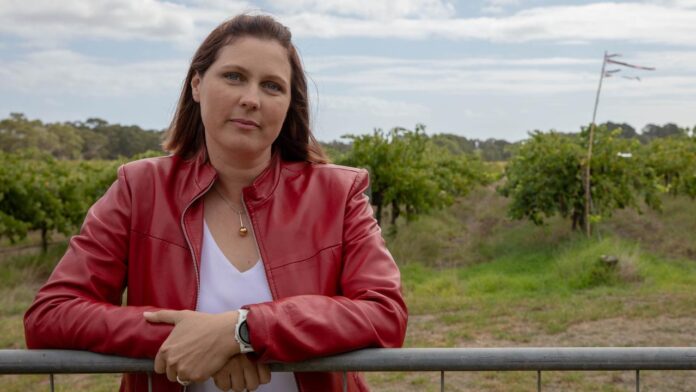[ad_1]
Wine producers have praised the government’s decision to walk away from a European Union free trade deal, arguing EU negotiators tried to “change the rules of the game midway through the game” to undercut the country’s multimillion-dollar industry.
EU negotiators, locked in discussions with Trade Minister Don Farrell, pushed for prohibitions on Australian producers using the prosecco name in a bid to preserve it for growers in the prosecco region of Northern Italy.
Prosecco is also widely recognised as a grape variety, though a decree was made under European law in 2009 to rename the variety Glera.
For Zonte’s Footstep co-owner and prosecco producer Anna Fisher, an agreement to redefine a grape variety into a geographical region would have entailed a dramatic rebrand of her own products at a “significant” cost to her business.
“We would have had to rebrand an entire product range that we have,” she said.
“It is kind of like turning around suddenly and saying we can’t use Shiraz, because the grape variety originated in Persia, therefore they have control over the grape variety.
“It puts the whole of the prosecco industry in a position where we suddenly have to come up with a way of explaining how that is different from a sparkling white or a Brut.
Ms Fisher has vineyards in McLaren Vale, the Barossa Valley, Adelaide Hills, and Langhorne Creek and prosecco is her third highest-selling product in the domestic market.
Grapes vs. regions
Wines are classified according to the variety of grape grown to produce them.
Pinot Noir and Shiraz are both red wines but comes from different grapes, each with distinct flavours.
Until 2009, the prosecco grape was seen in the industry as a variety rather than belonging to a geographical location, but Italian growers moved to change that and fix the term to Northern Italy, just as the words Champagne and Burgundy denote wines from those particular regions in France.
Australian exporters are blocked from using the term in Europe but the EU’s trade representatives also pushed for the ban to extend into Australia’s domestic market.
For Australia Wine and Grape CEO Lee McLean, the impact of controlling grape varieties outweighed any potential upside from the deal.
“We don’t mind the concept at all of protecting geographical indications when it comes to wine, we’ve done it for years,” he said.
“We in Australia can’t call our wines a Burgundy or a Champagne, for instance.
“The difference is we had the grape variety names to fall back on and that works in our favour because consumers know what a pinot noir is or a Shiraz.
“In this instance, what the EU is trying to protect here is the grape variety name, like Shiraz or Chardonnay.
“So they have changed the rules of the game, midway through the game, and we don’t think that is fair or reasonable and we are really pleased the government has stood firm on it.”
‘A genuine commercial concern’
Australia’s annual prosecco production is valued at $200m and growing.
“Prices have been good for prosecco grapes in an otherwise pretty depressed market,” Mr McLean said.
“There is a genuine commercial concern here.”
But the collapse in trade talks will likely cause some disappointment in some producers.
The power of the EU
The EU is a high-income trading bloc with 27 member countries and about 450 million consumers.
Australia does not have a free-trade agreement in place with the EU, which means exporters face a range of impediments entering the market.
In the 12 months to September 2023, the market value of wine exports to mainland Europe hit $183m, according to Wine Australia.
An agreement may have reduced tariffs and eased the certification requirements businesses need to jump through to get into Europe, though Mr McLean said this was not certain.
And while the market value does not match the value of exports to the US at $366m or the UK at $354m, Wirra Wirra CEO Matthew Deller said producers were confronting more “headwinds than tailwinds” and a free trade deal would be “extremely helpful”.
‘Headwinds and tailwinds’
“It’s not a worse situation than we were already in,” he said following the breakdown in talks.
“But it would be great for South Australian wine producers to have a better situation, it’s a very challenging wine market globally for the Australian category.”
The McLaren Vale producer ships bottles to the Netherlands, Germany and Scandinavia.
“They can be really good markets,” he said.
“Australia can’t rely on one market, we just have to do well in every major market in the world.”
Mr Deller said any future deal with the Europeans would be “tough” with both sides working to protect struggling farmers.
“With any negotiation you need to find common ground and find those gaps but I’m not envious of the negotiators in this one,” he said.
[ad_2]
Source link


